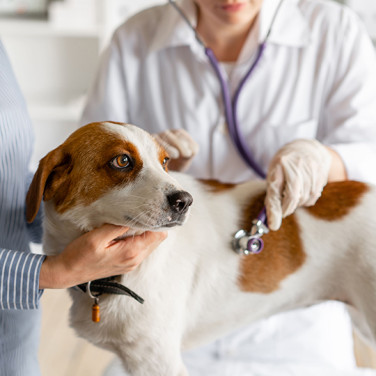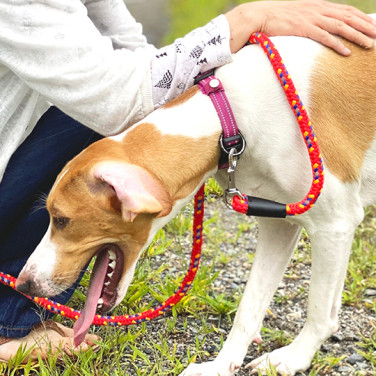FOOD
Can Dogs Eat Basil? Is Basil Bad for Dogs? Everything You Need to Know
페이지 정보
본문


Can dogs eat basil? YES!
Basil is a widely popular herb used in cooking and is often grown at home. You may have wondered whether it is safe to have a plant around a dog or if it is okay for dogs to have some basil. The good news is that basil is safe for dogs to consume. In fact, the antioxidants in basil are known to help prevent various diseases, including cancer, and also aid in preventing cell damage, promote calming anxiety, and relieve joint pain in dogs. It’s important to note that while basil can provide health benefits to your furry friend, excessive intake may lead to stomach upset and diarrhea. Learning the proper serving portions and feeding practices can help ensure avoiding any unwanted health issues when adding basil to your dog’s diet.
What are the health benefits of feeding basil to dogs?

The following benefits are some of the main health benefits your dog can receive from a small portion of basil in their diet.
-
Healthier skin and coat
Basil is a herb that is abundant in antioxidants like flavonoids and carotenoids. These antioxidants can aid in enhancing the immune system of your dog, which in turn can assist in keeping their skin and coat healthy. Moreover, it can also help in maintaining healthy joints by reducing inflammation.
-
Strengthens immunity
Basil contains antibiotics that have both antibacterial and anti-inflammatory properties. These ingredients can aid in strengthening your dog's immune system, enabling it to better handle exposure to diseases.
-
Digestive health
Basil contains a compound known as eugenol, which has been found to aid in promoting a healthy digestive system in dogs. As a result, including basil in your dog's diet may help alleviate some digestive issues, including vomiting and diarrhea.
-
Regulate brain activity
Basil contains the mineral magnesium which is beneficial for maintaining your dog's brain health. This essential mineral helps to regulate the dog's brain activity and enhance nerve function, thereby promoting overall cognitive health.
-
Boosts metabolism
Basil can also boost a dog’s metabolism, increase energy expenditure, and help with weight management. These effects can be particularly helpful for dogs who are overweight or who have a tendency to gain weight easily.
-
Regulate blood sugar levels
An animal study has reported that basil lowers blood sugar levels by stimulating insulin release in the pancreas and increasing glycogen synthesis, while simultaneously suppressing glucose production in the liver. This study has found that basil has the potential to effectively reduce blood sugar levels in animals.
-
Cavity prevention
Basil serves as an effective antibacterial agent, as it is capable of eliminating bacteria in the mouth when chewed. This quality makes it a valuable treat for preventing tooth decay, as the eradication of harmful bacteria can help maintain good oral health.
-
Calming effect
Basil has calming properties by reducing the levels of the stress hormone, corticosterone.
Precautions when feeding basil to dogs
Serving a small amount of basil can be a healthy snack option to enhance your pet’s overall well-being. However, consuming an excessive amount of it can lead to several adverse effects. Although basil is generally safe for dogs to eat, overindulging in it can cause digestive issues like vomiting and diarrhea. It's worth noting that a few dogs might be allergic to basil, so if you notice any allergic reactions, refrain from feeding it to your dog on a regular basis.
Signs of an allergic reaction to look out for:
- Skin problems: hives, facial swelling, itchiness
- Digestive problems: vomiting and diarrhea
- Shortness of breath
Best way to serve basil for dogs

To safely feed your dog basil, it's important to use fresh and organic herbs and remove any stems or wilted leaves. To prepare it, simply cut the basil into small pieces and sprinkle it on top of their meal as a topper. It’s vital that you only offer a pinch of basil for small-breed dogs(under 15 pounds), at most half a teaspoon for medium-sized breed dogs(15-40 pounds), and up to a teaspoon of basil for large-breed dogs(over 40 pounds). Exceeding these amounts can potentially cause digestive issues in your dog.
Wondering if you can feed your dog any other foods besides basil?

Does your dog also give you puppy dog eyes when you're snacking on something? You may know that certain foods like chocolate shouldn't be shared with them, but do you always check online to see if it's okay to give them a bite of what you're eating? The Buddydoc Food Dictionary has information on hundreds of human foods and whether they are safe and nutritious for pets. If you want to know more about other foods, try looking them up on Buddydoc!













